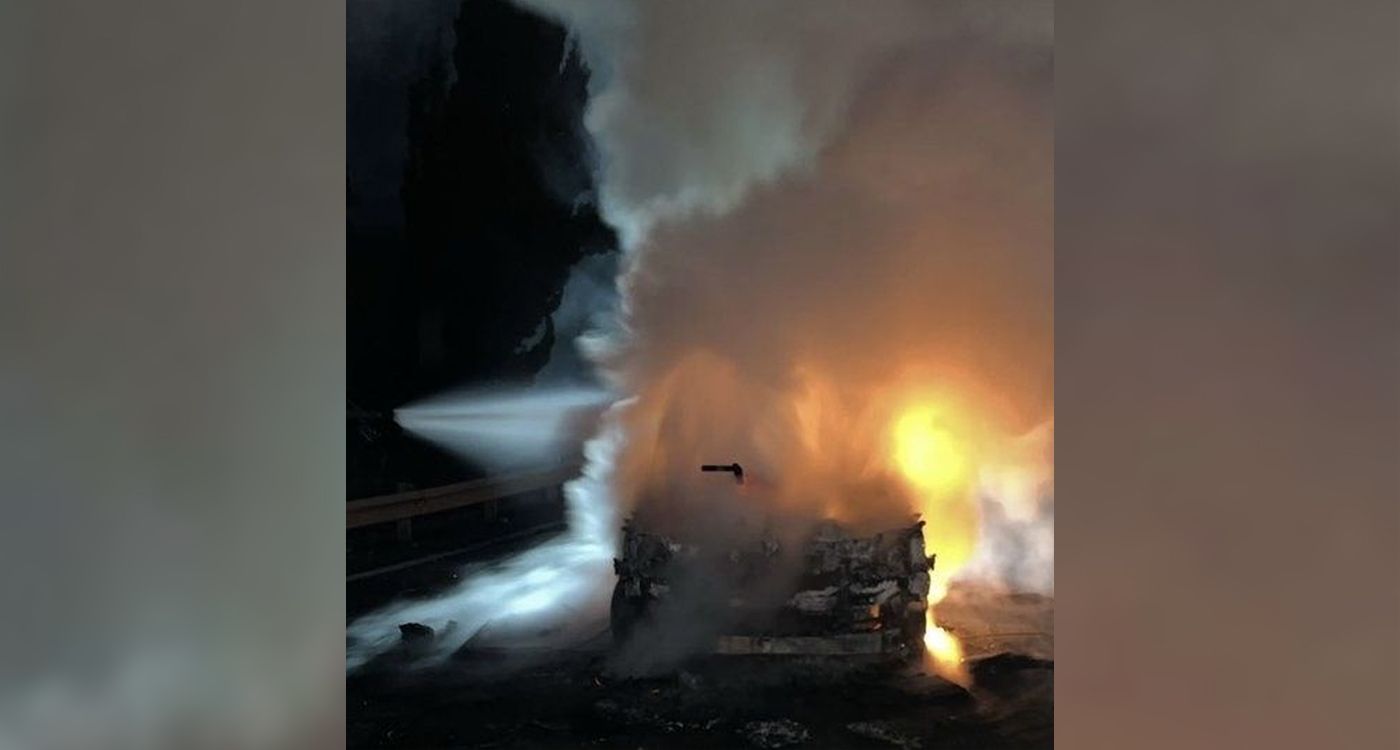
On Friday evening, a convoy carrying UNIFIL’s outgoing Deputy Commander, General Chok Bahadur Dhakal, was attacked by Hezbollah supporters near Beirut airport. General Dhakal sustained injuries and was hospitalized, while one of the three vehicles in the convoy was set on fire. Other members of the convoy were able to seek refuge within the airport compound.
In an attempt to deflect blame, Hezbollah claimed that the chaos around the airport was caused by “undisciplined troublemakers,” according to Al-Manar TV. The group accused these individuals of engaging in “anarchic actions for questionable purposes,” knowing that Hezbollah holds firm control over the area.
The Lebanese army responded swiftly to the escalation, demanding the immediate arrest of those responsible for the attack. As protests spread to Salim Salam Street and the Ring area near downtown Beirut, the military, deployed in large numbers, cleared the roads by removing barricades made of burning tires and rubble, which protesters had used to block access.
For the second consecutive night, Hezbollah supporters had shut down the airport road, first by burning tires, and then by bringing in trucks filled with dirt and debris to block all access to the airport. This was in protest against Lebanon’s decision to ban a flight from the Iranian airline Mahan Air to Beirut.
The United Nations quickly advised its personnel to avoid using the airport road, while the Lebanese army issued a warning about the ongoing disruptions. “Several areas, including the vicinity of the airport, are seeing protest activities marked by violations of public order, including attacks on soldiers and UNIFIL peacekeepers,” the army wrote on its X account.
The army also warned that continued unrest could lead to internal tensions with unpredictable consequences for Lebanon’s during this period, promising to “firmly prevent any harm to civil peace” and take action against those responsible for the unrest.
Justice Minister Adel Nassar, for its part, called the interim public prosecutor, Jamal Hajjar, to request an investigation into the airport incidents. The investigation will be conducted by the army’s intelligence services.
Meanwhile, Prime Minister-designate Nawaf Salam contacted the UN Special Coordinator for Lebanon, Jeanine Hennis-Plasschaert, and UNIFIL Commander General Aroldo Lazaro Saenz to assure them that steps were being taken to identify and arrest those responsible for the attack. The interim chief of the Lebanese army, General Hassane Audeh, also assured General Saenz of the army’s commitment to bringing the attackers to justice.
The attack sparked widespread condemnation, including from the Amal Movement, Hezbollah’s ally, which issued a statement calling any assault on UNIFIL an attack on South Lebanon itself. “Any roadblock, wherever it occurs, undermines civil peace,” Amal warned, urging the army to take decisive action against the instigators.
Later in the evening, UNIFIL confirmed that its Deputy Commander had been injured while returning home after completing his mission in Lebanon.
“We are deeply shocked by this outrageous attack on peacekeepers who have been working for years to restore security and stability in southern Lebanon during these challenging times,” the statement read, emphasizing that “attacks on peacekeepers are a clear violation of international law and could be considered war crimes.”
UNIFIL called for “an immediate investigation” and demanded that the attackers be brought to justice, reaffirming that its peacekeepers would continue their mission to restore security and stability in southern Lebanon.
The special coordinator for Lebanon, Jeanine Hennis-Plasschaert, also said in a statement that the attack was “unacceptable”. “Such an act of violence threatens the safety of United Nations staff who work tirelessly to maintain stability in Lebanon, sometimes at great personal risk”, she added.
Mrs. Hennis-Plasschaert emphasized that “the United Nations remains committed to working with the Lebanese government and all relevant stakeholders to preserve stability and implement United Nations Security Council resolution 1701”. “A full, transparent investigation must urgently be pursued to bring the perpetrators to justice”, she insisted.
Comments